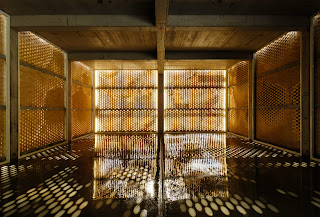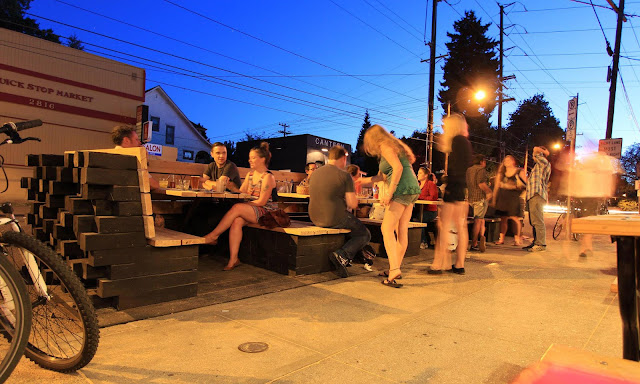What Makes a City Beautiful?
by Lucas Gray
This is a question I ponder as I visit cities throughout the world. Is it the surrounding landscape - like the snow capped mountains, rivers, lakes, and oceans? Is it the awe inspiring skyscrapers or beautiful old churches? Or could it be something else - perhaps a more human scale built environment, or widespread parks, trees and other green spaces?
On a recent trip around the world I visited a vast range of urban conditions that were often disheartening, sometimes stunning and yet often enough too similar. From Japan to Russia and on to Europe cities tended to blend from one to another losing the unique qualities of regional architecture. Landscapes were too often obscured by towers or tucked away below roads, bridges, buildings and other concrete monstrosities. Skyscrapers are all too familiar, boasting smooth glass facades while towering over adjacent concrete apartment blocks. Whether in Tokyo, Shanghai, Sydney or Toronto the buildings didn't reveal the uniqueness of the local climate.
I look at cities that celebrate their unique conditions and that is where I find the beauty. Berlin celebrating the river Spree and its many canals lined with parks and grand public buildings pops into my mind as a beautiful urban environment. Hong Kong with its stunning architectural skyline backed by a beautiful mountain and stunning views of the harbor is another example of a city that is complementing the grandeur of its environment.
Too often in America, cities turn their back on their environment. Elevated roads and rail yards separate downtown districts from adjacent lakes, rivers, or coastlines. Buildings rely on air conditioning and other mechanical systems to ignore the influence of the climate. Other cities blessed with an abundance of stunning landscapes lack great architecture - Portland and Vancouver pop into mind. Montreal turns it back to the St Lawrence River. Bangkok has replaced the majority of its hundreds of canals with roads. At least Sydney has embraced its water front and historic harbors.
I know there is not an easy answer to this question. Cities are huge complex entities that grow and morph over hundreds of years. I believe that urban planning and architecture that celebrates the local climate, landscape, materiality and culture is a step in the right direction.
This is a question I ponder as I visit cities throughout the world. Is it the surrounding landscape - like the snow capped mountains, rivers, lakes, and oceans? Is it the awe inspiring skyscrapers or beautiful old churches? Or could it be something else - perhaps a more human scale built environment, or widespread parks, trees and other green spaces?
On a recent trip around the world I visited a vast range of urban conditions that were often disheartening, sometimes stunning and yet often enough too similar. From Japan to Russia and on to Europe cities tended to blend from one to another losing the unique qualities of regional architecture. Landscapes were too often obscured by towers or tucked away below roads, bridges, buildings and other concrete monstrosities. Skyscrapers are all too familiar, boasting smooth glass facades while towering over adjacent concrete apartment blocks. Whether in Tokyo, Shanghai, Sydney or Toronto the buildings didn't reveal the uniqueness of the local climate.
I look at cities that celebrate their unique conditions and that is where I find the beauty. Berlin celebrating the river Spree and its many canals lined with parks and grand public buildings pops into my mind as a beautiful urban environment. Hong Kong with its stunning architectural skyline backed by a beautiful mountain and stunning views of the harbor is another example of a city that is complementing the grandeur of its environment.
Too often in America, cities turn their back on their environment. Elevated roads and rail yards separate downtown districts from adjacent lakes, rivers, or coastlines. Buildings rely on air conditioning and other mechanical systems to ignore the influence of the climate. Other cities blessed with an abundance of stunning landscapes lack great architecture - Portland and Vancouver pop into mind. Montreal turns it back to the St Lawrence River. Bangkok has replaced the majority of its hundreds of canals with roads. At least Sydney has embraced its water front and historic harbors.
I know there is not an easy answer to this question. Cities are huge complex entities that grow and morph over hundreds of years. I believe that urban planning and architecture that celebrates the local climate, landscape, materiality and culture is a step in the right direction.






